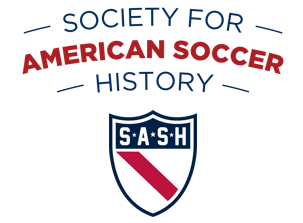A midfielder who was perhaps the leading American player of the 1990s, and certainly one of the pioneers in the movement of American players into top European leagues. He played in two World Cups for the United States and was one of the stars of the D.C. United powerhouse in the first years of MLS.
Harkes was the first American to become a major star in England. After playing for the United States in the 1990 World Cup, he signed with Sheffield Wednesday, was instrumental in that team’s promotion to the first division in his first season there, and gained notice throughout England for a shot that was named the goal of the season. Also in that 1990-91 season, he became the first American to play in a major final at iconic Wembley Stadium. He played for Sheffield Wednesday in the League Cup finals in 1991 and 1993 and the F.A. Cup final in 1993.
In 1996, Harkes was one of the Americans who made MLS a success in its first season. He was captain of the D.C. United team that won the MLS championship and the U.S. Open Cup that year. In 1998, although no longer captain, he was a leading member of the D.C. United team that won the CONCACAF Champions Cup.
Harkes grew up in Kearny, N.J., the son of parents who had emigrated from Scotland, and at one time was a ballboy for the New York Cosmos. He played college soccer at Virginia for Bruce Arena, who later was his coach at D.C. United and the U.S. national team; made his national-team debut in 1987, and by 1990 was a mainstay of the American midfield. He played for the United States in the 1990 and 1994 World Cups, the 1995 Copa America, the 1993, 1996 and 1998 CONCACAF Gold Cups and the 1999 Confederations Cup. At the 1995 Copa America, where the United States reached the semifinals, he was voted co-MVP of the tournament along with Enzo Francescoli of Uruguay, perhaps the greatest individual honor a male American soccer player has ever won.
In 1998, Harkes was controversially was dropped from the U.S. roster for that year’s World Cup by coach Steve Sampson. He was brought back by Arena, by then the national-team coach, before the start of the 1999 Confederations Cup, and finished his national-team career in 2000 with 90 caps.
Inducted in 2005.
